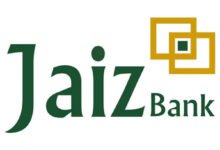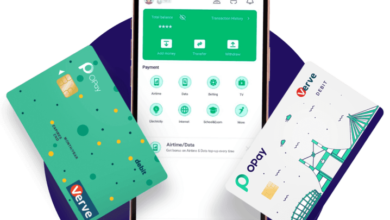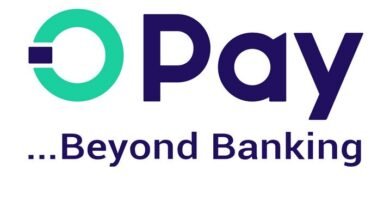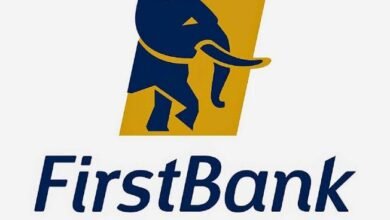Naira to Dollar Aboki Black Market Exchange Rate Today
Naira to Dollar Aboki Black Market Exchange Rate Today
The exchange rate between the Naira and the Dollar, especially on the black market, has always been a topic of interest for many Nigerians. The volatile nature of the Naira’s value against the Dollar has significant implications for individuals and businesses alike. In this article, we will explore the current exchange rate between the Naira and the Dollar on the Aboki black market, providing you with the latest updates and insights.
Naira to Dollar Exchange Rate Today
As of today, the Naira to Dollar exchange rate on the Aboki black market stands at ₦1225 to $1. This rate is subject to change at any given moment, as it is determined by various economic factors such as inflation, government policies, and foreign currency reserves.
The Aboki black market, although unofficial, serves as a major source of foreign exchange for Nigerians. It provides an alternative to the official exchange rate set by the Central Bank of Nigeria (CBN). Many individuals and businesses rely on the black market to access foreign currency, especially during times when the official rates may not be favorable.
Black Market/Aboki Naira to Dollar Exchange Rate Table
The table below outlines the black market prices for common denominations. Since the selling rate is ₦1225, we multiply it by the denomination in dollars. For example to convert $5, we multiply it by ₦1225
Denomination in Dollar($) Black Market Exchange Rate Today in Naira
| $ US Dollar | Nigerian Naira |
| 5 | ₦7,350 |
| 10 | ₦12,250 |
| 20 | ₦24,500 |
| 50 | ₦61,250 |
| 100 | ₦122,500 |
| 200 | ₦245,000 |
| 150 | ₦183,750 |
| 300 | ₦367,500 |
| 350 | ₦428,750 |
| 400 | ₦490,000 |
| 500 | ₦612,500 |
| 800 | ₦980,000 |
| 1000 | ₦1,225,000 |
| 2000 | ₦2,550,000 |
Factors Affecting the Naira to Dollar Exchange Rate
Several factors influence the Naira to Dollar exchange rate on the black market. Understanding these factors can shed light on the fluctuations and help individuals make informed decisions regarding foreign currency transactions.
- Inflation: High inflation rates tend to weaken the value of a country’s currency, including the Naira. As inflation rises, the purchasing power of the Naira decreases, leading to a higher exchange rate against the Dollar.
- Oil Prices: As Nigeria is a major oil exporter, fluctuations in global oil prices directly impact the Naira’s value. When oil prices decline, Nigeria’s foreign exchange earnings decrease, putting significant pressure on the Naira.
- Foreign Reserves: The amount of foreign currency reserves held by the CBN affects the stability of the Naira. Higher reserves provide a cushion against exchange rate volatility, while lower reserves can lead to a depreciation of the Naira.
- Government Policies: Restrictive government policies on foreign exchange can create scarcity and drive up the demand for Dollars on the black market, resulting in a higher exchange rate.
- Market Speculations: Speculative activities in the foreign exchange market can also cause fluctuations in the exchange rate. Traders and individuals involved in speculative activities can influence the supply and demand dynamics, leading to sharp movements in the exchange rate.
Implications for Individuals and Businesses
The exchange rate between the Naira and the Dollar on the Aboki black market has significant implications for individuals and businesses operating in Nigeria.
For individuals, the exchange rate affects their purchasing power of imported goods and services. A higher exchange rate means that imported goods become more expensive, potentially impacting the cost of living.
For businesses, especially those involved in international trade, the exchange rate determines the cost of importing raw materials and exporting finished goods. Fluctuations in the exchange rate can significantly affect profit margins and overall business performance.
Tips for Managing Exchange Rate Risk
While it may not be possible to completely eliminate exchange rate risk, individuals and businesses can take certain measures to manage and mitigate its impact:
- Forward Contracts: Businesses can enter into forward contracts with banks or financial institutions to lock in exchange rates for future transactions. This helps to hedge against future fluctuations.
- Diversify Revenue Streams: Businesses can consider diversifying their revenue streams to reduce reliance on a single currency. By generating income in various currencies, they can reduce the impact of exchange rate fluctuations.
- Monitor Economic Indicators: Staying informed about economic indicators such as inflation rates, oil prices, and government policies can provide valuable insights into potential exchange rate movements.
- Work with Professionals: Seeking advice from financial experts or currency exchange service providers can help individuals and businesses make informed decisions regarding foreign currency transactions.
Conclusion
The Naira to Dollar exchange rate on the Aboki black market is subject to various economic factors and fluctuates constantly. Understanding the implications of these fluctuations and taking proactive measures to manage exchange rate risk can help individuals and businesses navigate the foreign currency market more effectively. Stay informed, monitor economic indicators, and seek professional advice when necessary to make the most of your foreign currency transactions.









